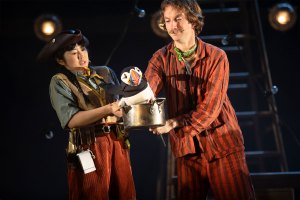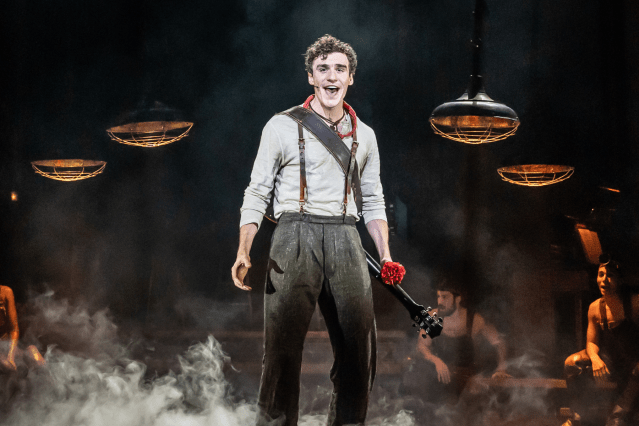The Last of the Haussmans
First-time playwright Stephen Beresford has worked as an actor with the
National and Out of Joint and has obviously acquired some good habits
when it comes to constructing a scene or, for that matter, the
occasional joke. And he’s been given the full works at the
National.
But
The Last of the Haussmans, affectionately and
patiently directed by Howard Davies, is exposed on the vast
Lyttelton stage as a promising debut rather than a seriously
accomplished one, making similar points about the 1960s ‘me’
generation to those in Mike Bartlett’s {Love Love
Love::E8831336121424} recently at the Royal Court, but with far less wit and
ferocity.
Julie
Walters plays Judy Haussman, an ageing, crone-like former drop-out
who is recovering from an operation and hosting the return of the
grown-up siblings, Nick and Libby (Rory Kinnear and Helen
McCrory), she farmed out to their grandparents in this same
crumbling Devon art deco mansion while she hit the hippy trail.
It’s
a wonderful role, and Walters seizes it with relish, supposedly
re-entering the real world by having a family meeting to decide the
future of the house. All similarities with The Cherry
Orchard are deliberate and rather obvious: Kinnear’s
lackadaisical gay mumbler and former heroin addict harbours weird
fantasies of being a weather girl just as Chekhov’s Gaev retreats
into his snooker shots.
And
there’s even a racy doctor, ebulliently played by Matthew Marsh,
who is conducting an adulterous affair with McCrory’s vivacious
Libby, though the younger characters – Isabella Laughland’s
bolshie teenager, Libby’s daughter, and Taron Egerton’s
secretive adolescent who drops by to use the pool and stoke random
lusty urges – have their own singular identity and derivation.
Vicki
Mortimer’s spectacular South Coast fastness has all the grime,
collected bric-a-brac, fading plants and bunting of a happy haven
gone to seed, and the future of this house, replete with memories, is
in the balance. Years of free love, bad behaviour, emotional neglect
and drug-fuelled routes to paradise have taken their inexorable
toll.
Not
that the arguments hold sway, finally, but it’s slightly depressing
to see a play at the National pandering so obviously to the new
Puritans and revisionist cultural historians. Even the mention of
Joan Baez and Bob (“expletive”-ing) Dylan raises a cheap laugh in
the first scene, and there’s a curious reaction to the angry
suggestion that this is no time of the night for Slade; is there any
time ever for Slade?












